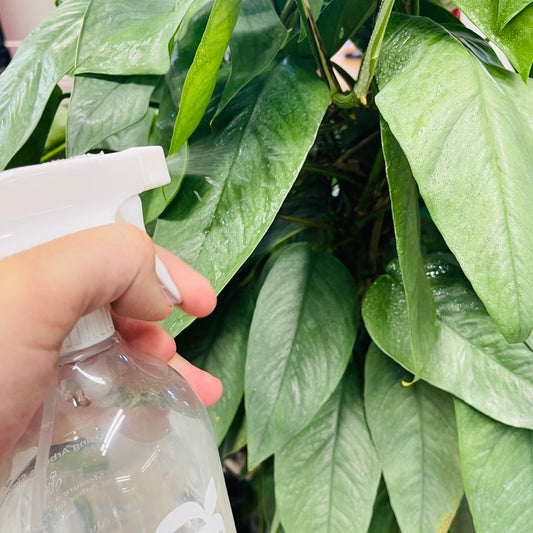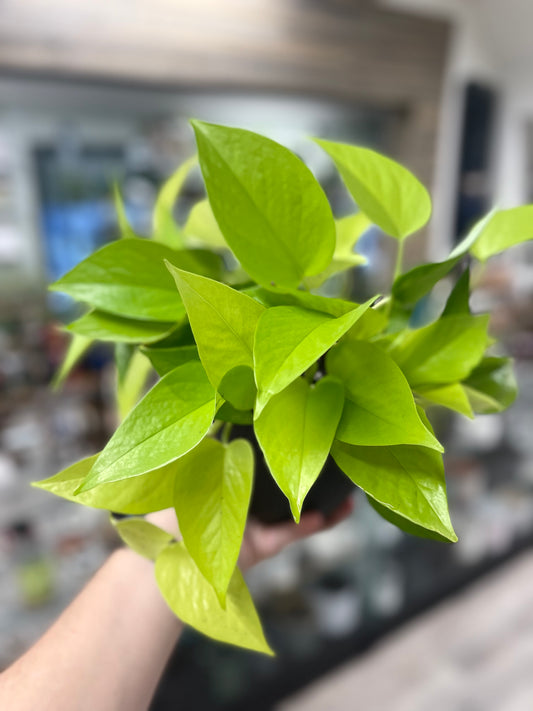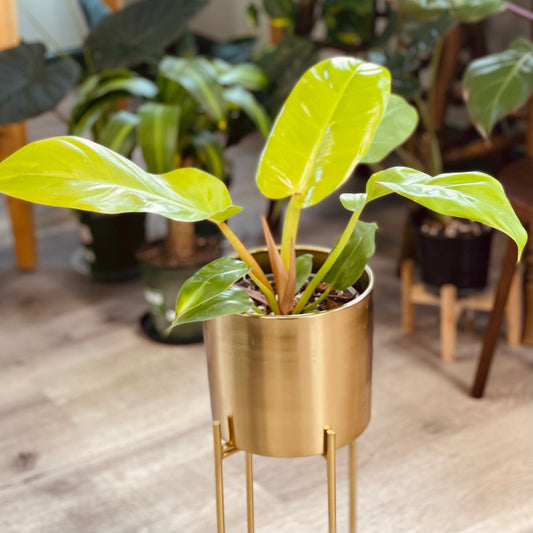Indoor plants have been widely acknowledged to have a positive impact on both mental and physical health. Studies have demonstrated that the mere presence of plants in a room can reduce stress, improve mood and increase productivity. But what mechanism allows plants to achieve this?
Air Purification
Plants possess the unique ability to clean the air by absorbing and removing pollutants and toxins through a process known as phytoremediation. This process occurs in the leaves of the plant, specifically through the tiny openings called stomata.
The stomata are primarily responsible for enabling the plant to take in carbon dioxide for photosynthesis, but they also allow other gases to enter the plant. As these pollutants and toxins enter the plant, they are absorbed and broken down by enzymes within the plant's cells. Some pollutants are converted into food for the plant, while others are transformed into harmless by-products that can be safely released back into the air.
One of the most common pollutants that plants can absorb and remove from the air is volatile organic compounds (VOCs). These are chemicals emitted from various sources such as paint, furniture, and cleaning products, and have been known to have negative effects on health. Studies have shown that certain indoor plants, such as the peace lily, snake plant, and English ivy, are particularly efficient at removing VOCs from the air.
In addition to removing pollutants, plants also release oxygen into the air through the process of photosynthesis, which can improve the overall air quality and make it easier to breathe. This can significantly impact respiratory health, particularly for those who suffer from conditions such as asthma or allergies.
Furthermore, the efficiency of air purification by plants depends on the size of the plant, the size of the space where the plants are placed, and the type of pollutants present. It's important to note that plants should not be considered as the sole method of air purification, but rather as an additional method alongside other air purification methods such as using air filters or ventilating a room.
Brain Chemistry
The relationship between plants and brain chemistry is a complex one, but studies have consistently shown that the presence of plants can have a positive impact on our mental well-being. The act of caring for plants and being in the presence of greenery has been shown to have a direct effect on the brain's chemistry.
One study conducted by researchers at the University of Exeter found that simply viewing plants can reduce levels of cortisol, a stress hormone, in the body. The study participants were shown a series of images, some of which included plants, and researchers found that the cortisol levels were lower in participants who viewed the images with plants. This suggests that simply being in the presence of plants can have a calming effect on the body, reducing stress and promoting a sense of well-being.
Another study, conducted by researchers at the University of Michigan, found that the act of caring for plants can increase levels of serotonin, a chemical associated with happiness and well-being. The study participants were asked to care for plants, and researchers found that their serotonin levels increased as a result. This suggests that the act of nurturing and caring for plants can have a positive impact on our mood and mental well-being.
Seasonal Affective Disorder, or SAD, is a type of depression that is triggered by the changing seasons, typically during the fall and winter months when there is less natural light. The lack of sunlight can disrupt the body's natural circadian rhythm, leading to feelings of sadness, fatigue, and lack of energy. Indoor plants have been shown to positively impact individuals suffering from SAD. Studies have found that being around plants can help improve mood and combat the symptoms of SAD.
Physical Health
The act of gardening and being around plants has been shown to have a number of physical and mental health benefits, one of which is the ability to lower blood pressure and heart rate. Studies have consistently shown that spending time in nature, whether it's through gardening or simply being around plants, can have a calming and relaxing effect on the body.
A study conducted by researchers at the University of Derby found that gardening can significantly reduce blood pressure and heart rate. The study participants were asked to garden for 30 minutes, and researchers found that their blood pressure and heart rate decreased as a result. This suggests that the act of gardening can have a calming and relaxing effect on the body, reducing stress and promoting a sense of well-being.
Another study, conducted by researchers at the University of Queensland, found that being around plants can lower heart rate and blood pressure. The study participants were asked to spend time in a room with plants, and researchers found that their heart rate and blood pressure decreased as a result.
Being in nature or around plants can also have positive effects on our mental health. Studies have found that people who spend time in nature have decreased symptoms of depression, anxiety, and other mental health conditions. Furthermore, gardening, in particular, has been shown to positively impact mental health, reducing symptoms of anxiety and depression, and improving self-esteem.
In conclusion, incorporating indoor plants into your home and incorporating gardening or other nature-based activities into your daily routine can have a positive impact on both your physical and mental health. The air-purifying abilities of plants, as well as their ability to directly affect brain chemistry, make them a valuable addition to any living space. The act of caring for plants can reduce stress hormone levels, increase happiness-inducing chemicals, and lower blood pressure and heart rate, promoting a sense of calm and relaxation. Whether you're dealing with respiratory issues or mental health conditions, indoor plants can provide a natural, holistic solution that can improve your overall well-being.
It's important to note that more research is needed to fully understand the extent of the benefits of indoor plants on health, and it's not recommended to rely solely on plants for air cleaning but consider it as an addition to other air cleaning methods such as using air filters or ventilating a room. However, the available scientific evidence suggests that indoor plants can easily and effectively promote better health and well-being. So, if you're looking for a simple way to improve your health and well-being, consider incorporating indoor plants into your life.





![Dracaena marginata (16" Plastic Pot) [ID #47618480]](http://zenrockford.com/cdn/shop/files/image_992491d2-6277-4893-842f-11e2983f137e.jpg?v=1725732294&width=533)
![Philodendron Florida Bronze (10" Nursery Pot) [ID #29432345]](http://zenrockford.com/cdn/shop/files/image_a67d0fb6-348e-4829-a7eb-64ce015a3b39.jpg?v=1725643115&width=533)
![Aglaonema Manilla's Pride (3" Plastic Pot) [ID #33051624]](http://zenrockford.com/cdn/shop/files/image_1fb45f38-7b6b-412c-aa29-ed2df326d106.jpg?v=1753291075&width=533)
![Scindapsus Silver Lady (8" Clay Pot w/ Moss Pole) [ID #47128926]](http://zenrockford.com/cdn/shop/files/image_f5c79dcd-5dd4-4ba3-9cf7-f49da779e5ea.jpg?v=1726510803&width=533)